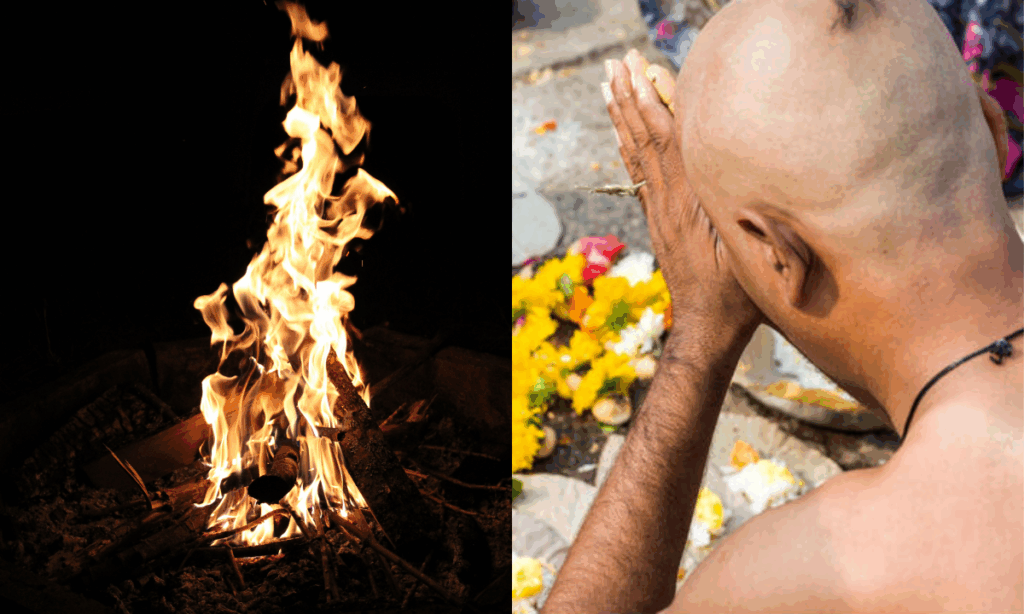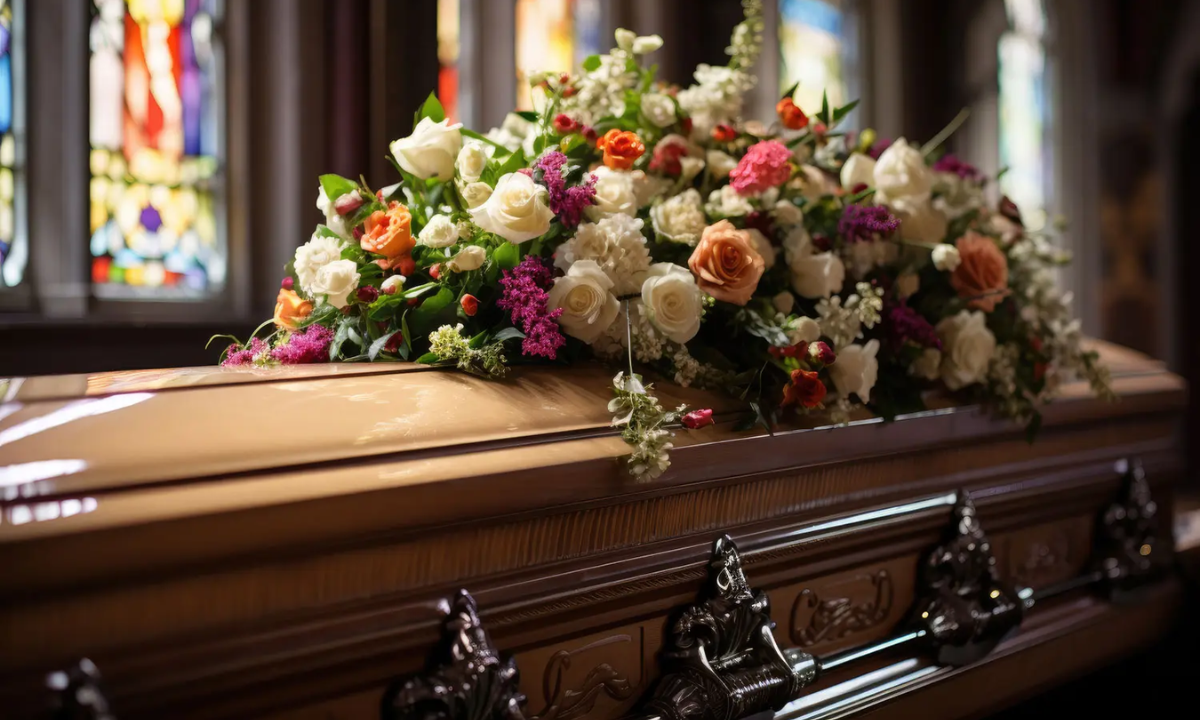Tradition Meets Modernity is more than a phrase. It perfectly describes how Hindu funerals have changed over time. Rooted in beliefs and centuries-old customs, these rituals have adapted to modern life.
Hindu funerals now mix old traditions with modern practices. They range from wood-fire cremations to eco-friendly electric cremations. Funeral services in India help families follow rituals while using modern conveniences.
In this article, we explore how Hindu funerals are evolving while keeping their spiritual meaning alive.
The Spiritual Meaning of Hindu Funerals

At the heart of Hindu funeral rituals is the belief in the eternal life of the soul. The body is temporary and returns to the five elements. The soul continues its journey toward liberation or rebirth.
Hindu final rites are not just about honouring the deceased. They guide the soul toward peace. These rituals also help families deal with grief. Taking part in ceremonies makes mourning both emotional and spiritual.
From Traditional Cremation to Electric Cremation
For centuries, a cremation ceremony used a wood pyre by a river. People spoke Vedic chants to purify the soul. Fire has always been central to the ritual.
Today, many cities use electric cremation. This change is because of city growth and environmental concerns.
| Traditional Cremation | Electric Cremation |
|---|---|
| Performed on a wood pyre | Uses electric or gas furnaces |
| Requires large amounts of wood | Eco-friendly and saves resources |
| Conducted outdoors near rivers | Done in modern crematoriums. |
| Symbolic connection with fire. | Retains ritual purity with priest guidance |
Both methods are valid. Families can choose based on beliefs, convenience, or environment. This shows how tradition adapts to modern needs.
Ceremonies After Death: Then and Now
Traditionally, ceremonies after death took place over many days. Families performed daily prayers, food offerings, and rituals like pind daan.
Today, a busy life can make it hard to follow every ritual. Funeral services in Bangalore and other cities help families complete these ceremonies respectfully.
Tip: Even if simplified, make sure to perform key rituals after death. These include cremation, Asthi Visarjan, and the Shraddha ceremony. They are important for spiritual reasons.
The Modern Role of a Funeral Director
Earlier, family elders or priests guided funeral rituals. Today, a Funeral Director plays a key role.
They manage logistics and rituals. They arrange transport for the body and organise the cremation ceremony. This lets families focus on mourning while someone performs the rituals correctly.
Funeral directors also help bridge tradition and modern needs:
- Coordinating electric cremation.
- Guiding families on Hindu final rites.
- Arranging ritual spaces and ritual materials.
This shows how Funeral services in India meet both emotional and practical needs.
Example: Blending Tradition and Modern Practices
A family in Bangalore recently used professional services after a loved one passed away. They conducted the electric cremation with proper rituals. Later, they performed the 13th-day ceremony.
This example shows how tradition meets modernity. Rituals remain the same, while modern services make the process easier for families.
Final Thoughts
Hindu funerals show how Tradition Meets Modernity. From traditional Hindu cremation to eco-friendly electric cremation, every ritual balances tradition with modern needs.
With organised Funeral service providers in India, families can honour loved ones while following proper rituals. At Kaashimukthi, we respect the Hindu final rites while making the process smooth. Preserving tradition while embracing modern practices helps families grieve with dignity and love.
FAQs on Hindu Funerals
Q1. In what ways have Hindu funerals evolved in contemporary times?
While the essence of Hindu funeral rituals remains, practices have adapted. Electric cremation and professional funeral directors now complement traditional customs.
Q2. To what extent is electric cremation recognised and accepted within Hindu funeral practices?
Yes. Electric cremation keeps the sacred fire element, environmentally sustainable and efficient, while remaining traditionally valid.
Q3. What role does a Funeral Director play in Hindu funerals?
A Funeral Director manages logistics, guides rituals after death, and arranges ritual materials. They help families follow traditions while reducing stress.
Q4. Are contemporary funeral services equipped to manage and facilitate post-death ceremonies?
Yes. From the shraddha ceremony to Asthi Visarjan, professional Funeral services in Bangalore manage everything. They arrange priests, ritual materials, and venues, ensuring proper Hindu final rites.
Q5. Why do ceremonies after death continue to hold importance in Hindu traditions?
Absolutely. Ceremonies after death honour the departed and provide closure. They support the soul’s journey and remain traditionally meaningful.

Madhu is an Entrepreneur, a Mentor, a Writer and an Aspiring Car Race Driver. He is Deeply passionate about leveraging Technology and Human Centred Design to make complex care and End of Life Planning easier. With the ultimate aim of Improving the quality of Life in the Twilight years. Madhu is highly educated and Alumni of IIM-Bangalore, Sikkim Manipal University and Bangalore University besides a Rich Industry Experience in the field of Product Management, Design, Supply chain, Finance, Commercial Management and Funeral Services.

